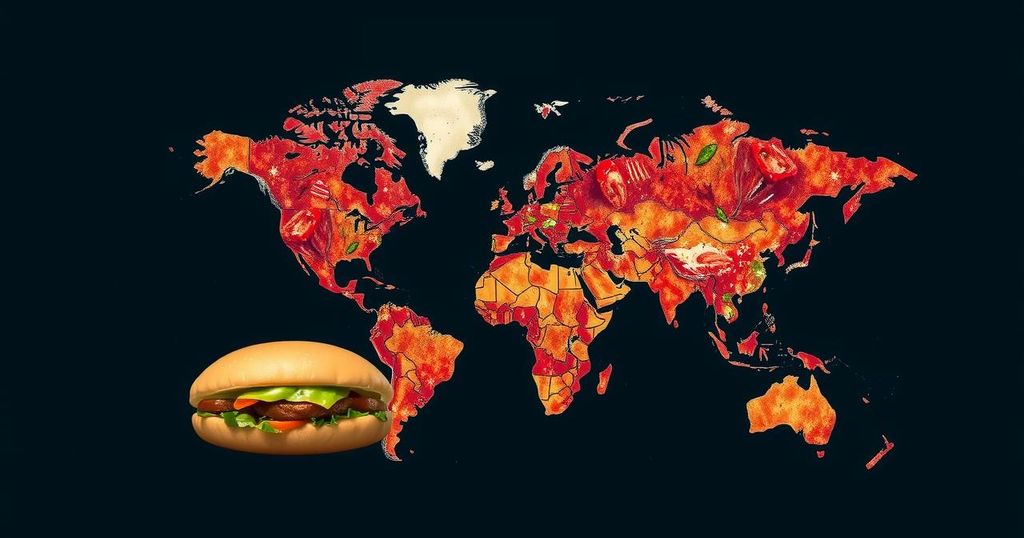Impact of Reduced Meat Production in Wealthy Nations on Climate Change
A recent study finds that reducing meat production in wealthier nations by about 13% could remove 125 billion tons of carbon dioxide from the atmosphere, promoting carbon sequestration through forest regrowth. This modest change could match three years of global fossil fuel emissions, highlighting the benefits for climate preservation and ecosystems.
A recent analysis reveals that even modest reductions in meat production in wealthier nations could significantly mitigate climate change. Specifically, cutting beef production by approximately 13% could result in the removal of 125 billion tons of carbon dioxide from the atmosphere, surpassing total global fossil fuel emissions over the last three years. By reducing cattle grazing, it would allow for the regrowth of forests on former pastureland, which can sequester carbon dioxide effectively. Research findings indicate that pasturelands in wealthier countries hold great potential for ecosystem restoration. These regions can revert to forest, capturing carbon in the soil and trees once livestock grazing ceases. The study identifies high- and upper-middle-income countries as optimal candidates for meat production reductions due to their often low grass productivity and limited growing seasons. While lower-income nations could enhance the efficiency of beef production to offset losses from wealthier countries, it calls for strategic improvements rather than sweeping changes. The researchers project that complete removal of livestock from potentially forested areas worldwide could lead to sequestering up to 445 gigatons of carbon dioxide by the century’s end. This approach would not necessitate eliminating livestock from grasslands where crops or forests cannot thrive. Instead, it would require reducing herds by less than half, showcasing the significant potential of natural forest restoration as an impactful climate solution. Employing advanced remote sensing technology, the study assessed pasture productivity and estimated the climate benefits of reduced livestock numbers. It determined how much pasture would need to be sacrificed in each area to facilitate tree regrowth, emphasizing the health and environmental advantages of reducing meat consumption in higher-income regions. Maps generated from the research may aid in pinpointing areas for policy intervention to promote lower beef production and enhance forest recovery. The authors stress that while ecosystem regrowth cannot completely replace the need to reduce fossil fuel emissions, it can serve as a complementary strategy to combat climate change. They note that natural regrowth can occur without human involvement in various regions, although in severely degraded areas, active tree planting may accelerate restoration. The implications of this research are vital as nations strive to meet international climate targets, highlighting the importance of identifying strategic areas for reforestation alongside food security concerns.
The paper discusses the growing concern over climate change and the significant impact of meat production on greenhouse gas emissions. Over the years, there has been a call for drastic reductions in meat production worldwide, particularly in affluent nations where consumption rates are particularly high. This study indicates that even a modest reduction in meat production, especially beef, could greatly benefit not only the environment by enhancing carbon sequestration but also support sustainability in food production systems. The researchers provide a nuanced approach that addresses ecological restoration alongside maintaining food supply stability.
In summary, this analysis reveals that small reductions in meat production, particularly in wealthy nations, can lead to substantial climate benefits. By allowing for the natural regrowth of forests on former pastureland, it is possible to achieve significant carbon dioxide sequestration, which could exceed global fossil fuel emissions. The findings advocate for a strategic approach to livestock production that balances climate mitigation with food security, emphasizing the potential of ecosystem restoration as a viable path for addressing climate challenges.
Original Source: www.eurasiareview.com




Post Comment